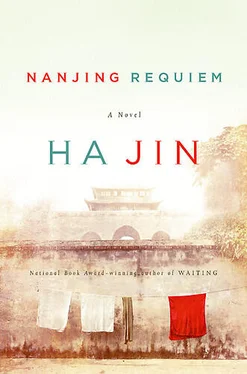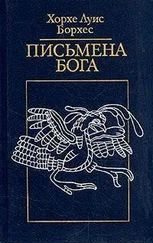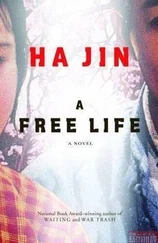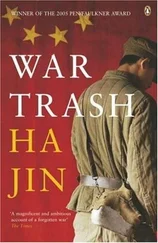Minnie and I went to see Yulan again. The young woman looked sickly and six or seven years older than her age; evidently they wouldn’t let her out for fresh air and sunlight. She was now kept in a small room with a teenage girl, who was also demented. They each had a cot, and with permission, visitors could go in and see them. Minnie handed Yulan a bag of dried persimmons, which the madwoman tore open with her teeth. She took a bite of the sugar-frosted fruit, and said, “Wow, this is amazing! I haven’t tasted anything like this in ages.” Her elongated eyes glittered, and her chin moved from side to side as she munched. In spite of the warm weather, she still wore Minnie’s light woolen coat, though its fur collar was gone. What happened to the jacket we brought her last time? I wondered, but didn’t let the question out.
“I’m glad you like it,” Minnie said about the fruit, seated on the only stool in the room while I was sitting on the other girl’s cot.
Yulan asked her ward mate, “Little Catty, d’you want some?”
“No, I eat fresh fruit only,” the teenager muttered, and kept picking her ear with a long matchstick.
“Actually she only eats rice, not even vegetables,” Yulan told Minnie. “Sometimes she won’t eat for two or three days in a row, so they have to tie her up and force-feed her.”
“What happened to her?” Minnie asked.
“She’s a mental case. The Japs killed her folks in front of her and stabbed her in the neck.” Indeed, on the girl’s nape was a purple scar that still looked raw.
Minnie asked Little Catty, “Do you want me to bring you something when I come next time?”
“Bring me a knife, a long sharp knife,” the girl said through her teeth, her eyes glinting.
“See, see, she’s a crackpot,” Yulan cried. “But I also could use a big knife so no man will dare to come close to me.”
After promising Yulan that we would come to see her again and bring her another jacket and a dress, we left. Stepping out of the doorway, for some reason Minnie said, “I wish we could set this building on fire so in the middle of the mayhem, we could smuggle Yulan and Little Catty out of here.”
“That’s a great idea,” I said.
She grinned and the corners of her mouth crinkled a bit.
We stopped by Tianhua Orphanage to see Monica, who welcomed us effusively, but her cheeks were flushed, her blond hair thinner than before and the rings under her eyes darker. She confessed that she had tuberculosis; yet she smiled, saying, “If God wants me back, I’m ready — I’m willing to go anytime.” She spoke as though longing for relief, dabbing her mouth with a hand towel whenever she coughed.
I wondered whether it was appropriate for Monica to stay with the children. Wouldn’t she spread the germs and give them the disease? The Japanese were obsessed with sanitation and hygiene — why wouldn’t they intervene in this case? Well, to them, these babies must be no more than bastards.
We didn’t touch the tea a nurse had poured for us, but chatted with Monica for a good while. The orphanage kept fewer children now, seventeen in total; eleven of them couldn’t walk or talk yet. They all looked undernourished, and some stared at the grown-ups with dumb, unblinking eyes. I couldn’t help but wonder if they were retarded.
“This boy’s father is Japanese,” Monica told us, pointing at a bony baby whose face was a little shriveled.
“You mean his mother threw him away?” Minnie asked in surprise.
“Yes, some Chinese women, especially the unmarried ones, are too ashamed to keep babies fathered by Japanese soldiers.”
“I don’t blame them, but it’s a sin to abandon innocent children.”
Monica heaved a sigh. “We have eight babies of mixed blood.”
“I can’t tell a Chinese baby from a Japanese baby,” Minnie said.
“Neither can I,” I put in.
“It’s hard to differentiate them indeed,” Monica told us. “Five of them were given to us by their mothers, and three were brought over by a Chinese policeman, who picked them up at the doorstep of a temple.”
“What happened to those older orphans?” Minnie asked.
“You mean those six- and seven-year-olds?”
“Yes.”
“They were sent to our mission school in Changsha.”
Minnie’s face brightened. “Monica, you’ve been doing an angel’s work.”
“You think I don’t know what you’ve been up to?” The nun smiled, her deep-set eyes gleamed, and her gaunt face wrinkled a bit but was calm. “Be careful. The Japanese and their flunkies hate you. They don’t want Christianity to take root and flourish in China.”
“I’ll try not to be afraid,” Minnie said.
“Right, to be afraid is not a way of living. If the soul lives forever, death is no more than a stage of life and we have nothing to fear.”
“You’re right.”
I was impressed by Monica’s remarks. The nun was in her late thirties at most but exuded so much serenity that the orphanage, shabby as it was, reminded me of an oasis in tumbling waves.
Back on campus, I filled a glass jar with cod-liver oil. I was in charge of two large barrels of it, given to us by John Magee long ago, and every student at Jinling had been taking a teaspoon of the oil a day since last winter, as Robert Wilson had instructed after he’d examined some of the girls. Minnie dispatched Ban to deliver the cod-liver oil to Monica with a note saying she needed to take it every day.
MY HUSBAND HAD WRITTEN me that he had left Sichuan for Kunming and joined the faculty of the National Southwest Associated University. He couldn’t write regularly, because he was afraid those who wanted him to serve in the puppet government might find out his whereabouts and mistreat us here. As long as he was safe, Liya and I could feel at ease. My son-in-law, Wanmu, also wrote. He’d been moving around a lot with his intelligence unit but was well and devoted to fighting the Japanese. He missed his wife and son but couldn’t possibly come back to see them. Liya sometimes got depressed and cried at night, though during the day she always looked normal and did what she was supposed to do. She once confessed to me that she had often dreamed of Wanmu and was worried that they might never be together again. What if he hit it off with another woman? she asked me. Nowadays the servicemen tended to live an unrestrained life, grasping at every small pleasure that came their way, because they might be killed at any time. I told Liya to scrap such silly thoughts. Wanmu was a dependable man, though I had never liked him that much. He was capable but somewhat nondescript, with a curved scar beside his nose. Liya could have done better than accepting his proposal. Yet I was certain he’d take good care of his family; that’s why I agreed to her marrying him.
To my astonishment, I received a letter from Mitsuko in late March. It contained a photograph and a piece of paper stamped with a baby’s handprints and footprints in black ink. Those must be Shin’s. Apparently Mitsuko didn’t know enough Chinese to write a note. The photo showed Shin smiling, with his eyes glittering a little and his mouth widening. He looked happy and healthy. On the back of the picture his mother penned: “Shin, 100 days.” Seeing those words, I couldn’t help my tears. If only I could hold him.
At night after Fanfan went to sleep, Liya and I sat in our large bed leaning against each other and talked about Mitsuko and Shin. I wondered if we should write to them. “Mom, Mitsuko probably can’t read Chinese,” Liya said. “Maybe we should send her something instead.”
“But what can we send?” I thought aloud. Besides the difficulty in coming by something nice, I wasn’t sure that the international mail was reliable.
Читать дальше











